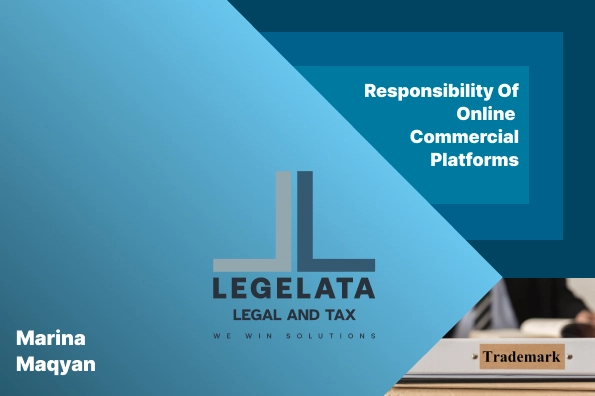Introduction:
IMarket competition among businesses also affects the workforce. Employers, aiming to protect their commercial secrets and know-how, often use non-compete agreements or clauses in labor contracts. Over time, this practice has become standard for various positions across different jurisdictions. However, it has also restricted employees' freedom to change jobs and limited competitors' ability to hire experienced staff, especially in at-will employment jurisdictions like the USA, where employment can be terminated immediately (1) , i.e. At-Will (2) .
1.1. US Ban on non-compete agreements:
In April 2024, the US Federal Trade Commission (FTC) voted to ban non-compete agreements that prevent employees from working for competitors or starting competing ventures after leaving their jobs. According to the FTC, non-compete clauses suppress wages, stifle innovation, and hinder economic dynamism, including the potential creation of over 8,500 new startups annually. (3)
The FTC's initiative, proposed at the start of 2023, stems from antitrust concerns over unfair competition methods. These agreements typically prevent employees from joining rival businesses for a set period, which is often dictated unilaterally by employers and may be non-negotiable. The FTC views non-compete agreements as exploitative practices that cause significant harm and expense to former employees. Consequently, the FTC aims to ban these agreements, except for those involving senior executives, where existing agreements can still be enforced but new ones cannot be created. (4).
1.2. Non-Compete agreements – Sword of Damocles:
Armenian (RA) legislation does not specifically regulate non-compete agreements within employer-employee relationships. The RA Constitution guarantees the right to free employment choice (5) and prohibits forced labour, with some exceptions. (6) Various international agreements and conventions also protect the right to freely choose employment which was ultimately adopted within RA Constitution and legislation. (7)
RA legislation unlike many other countries (8) does not specifically regulate non-compete agreements/clauses within the employment relationship. In practice, there are two approaches to regulating non-compete agreements in Armenia. Some practitioners, following labour legislation, view the absence of specific rules as a prohibition of such agreements. Others, interpreting from a Civil Code perspective, consider it as an exercise of the parties' free will to enter into agreements. It is worth underlining that neither practitioners nor the RA Commission for Protection of Competition have primarily addressed non-compete agreements from the perspective of exploitative practices. However, these agreements in reality have an opportunity to restrict market competition and may be viewed as exploitative under RA antitrust laws and the Constitution (9) when viewed under a certain angle. Poorly drafted non-compete agreements could thus pose an antitrust “threat” to employers.
Conclusion
Unlike many jurisdictions, Armenia does not directly regulate non-compete agreements in labor relations. While many countries balance the constitutional right to free employment choice with economic freedom through legislation or practice, Armenia has not yet adopted this approach. This lack of regulation can be seen as both an opportunity and a restriction. Properly utilized, it offers a chance for innovative solutions with the required expertise. However, without professional and balanced regulation, the current legislative framework could become a "Sword of Damocles" for employers in the market.
Author:
Arthur Buduryan
Partner, Legelata Law Firm
DISCLAIMER:
This material is produced for Legelata LLC. The information contained in this piece is provided for general informational purposes only and does not contain a comprehensive analysis of each item described. Prior to undertaking (or not to undertaking) any actions, the reader is advised to seek professional advice tailored to their specific situation. Legelata or the author accepts and holds no liability for acts or omissions taken in reliance upon the contents of the contained information in this material.
LEGELATA LLC 03/06/2024
1 “Termination guidance for employers” found at https://www.usa.gov/termination-for-employers#:~:text=At%20will%20employment&text=This%20means%20that%20an%20employer,origin%2C%20disability%2C%20or%20genetic%20information
2 In most U.S. states, employment is "at-will", meaning either the employer or the employee can terminate the employment relationship at any time, with or without cause, and with or without notice. This provides a broad scope for immediate terminations.
3 FTC Chair Lina M. Khan.
4 As per the FTC as a result of the Ban, new business formation will grow by 2,7% creating over 8,500 new businesses each year, https://www.ftc.gov/system/files/ftc_gov/pdf/Non-Compete-Fact-Sheet.pdf
5 RA Constitution (with amendments from 2015) Article 75(1).
6 Ibid. Article 57 (5).
7 The Universal Declaration of Human Rights - Article 23; International Convention on Economic, Social &
Cultural Rights - Article 6(1); Revised European Social Charter – Part 1, etc.
8 Such as Italy, Denmark, Germany, Argentina, France – within the scope of employee loyalty.
9 RA Constitution with amendments, Article 59 (2 & 3).












